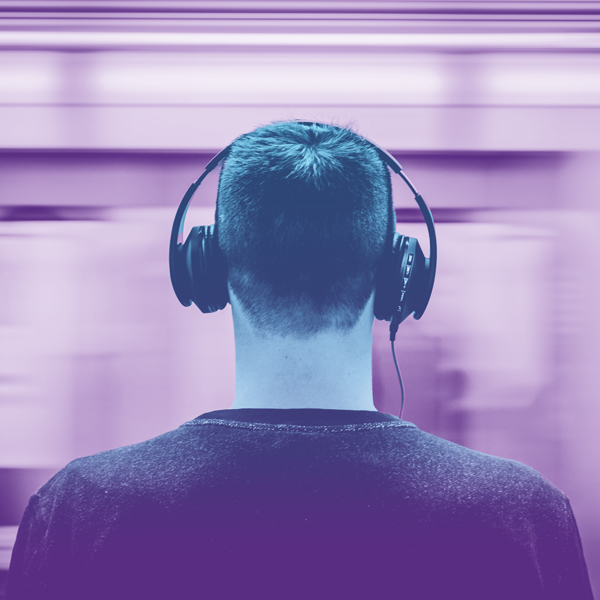Healthy Distractions in Recovery
One of the most important steps in recovery is taking care of yourself. Regaining your life is more than returning to daily routines. It is important to discover personal interests that build confidence and self-esteem and make you feel good about life. Healthy distractions help you avoid the urge to use substances.
Some activities are fun to do on regular basis and others might be occasional happenings. The key is to do what you enjoy and what relaxes you. Be willing to try new things to avoid boredom and restlessness. Here are some popular activity ideas to get you started.

1. Enjoy Nature
Being in nature is healing to the body and mind. People who spend time outdoors regain a sense of hope. A positive mindset is a key factor in people believing they will get well and be whole. Nature reflects a sense of belonging for individuals who feel lost and anxious.
In open spaces, you can think clearly and assess who you truly are as a person. Short periods of time outside throughout the week can boost your mood and promote the healing process.
2. Start Journaling
Journaling your thoughts and feelings reduces stress and releases emotions. A writing practice allows you to put your feelings down and leave them there. You can revisit parts of your life and understand them in the proper context. There is no right or wrong way to keep a journal. It is essential to express your thoughts and feelings in a way that is meaningful to you. Here are some types of journals to consider:
- Gratitude: Keep a list of things you are thankful for in life.
- Visual: Express your feelings through drawing or painting.
- Intuitive: Write a question and respond honestly— from the gut-level— about what you feel is right.
- Stream-of-consciousness: Let your thoughts and feelings flow on the page without critiquing or editing what you write.
- Letter: Direct your feelings in letter form to someone you need to speak to but are unable to talk with in person.
- Inspirational: Write about anything that inspires you or about people you want to emulate.
The sky is the limit with creative journaling. Give yourself this space to learn and grow.

3. Try Creative Writing
Writing stories and poetry are great ways to stimulate the creative parts of your brain. The act of writing reorders neural pathways to form new thinking patterns. This is how you can make lasting life changes.
Creative writing also activates specific neurochemicals that produce feelings of happiness and wellbeing. The writing process requires deeper thought and more complex word usage that excites the brain and stimulates positivity.

4. Practice Kai Chi Do
Kai Chi Do is a system of movements that involves music and breathwork. It is a meditation practice combined with exercise and yoga, all of which are proven to benefit health and wellness. Kai Chi Do is usually performed in groups, so you get important social benefits as well. This practice is adaptable to any fitness level. It is an instrument of whole-body healing essential to addiction recovery.
5. Take Up Cooking
Preparing meals is a cathartic way to calm anxiety and eat well. There are many therapeutic benefits to being your own chef. Taking time each day to cook a healthy meal distracts you from nagging concerns. The sights, smell and tastes are pleasurable to the senses and produce positive emotional responses. It also releases creative energies as you experiment with different recipes. Pick up some cookbooks and do some culinary exploration.
6. Get Coffee with a Friend
Social interactions are necessary to ease your mind of emotional burdens and to prevent isolation. Changing your surroundings is essential to staying positive. Call a friend to go for a coffee. This simple act can brighten your day and give you reasons to be hopeful. It helps to engage in light conversation and focus on topics that encourage and motivate you.

7. Watch TV or Play Games
There are times when sitting in front of the TV and finding a good movie or program is what you need to wind down from stresses and pressures. TV watching does not have to be a mindless activity. There are many great movies, documentaries and programs on endless channels to inspire you.
Games are good ways to take a breather and step away from daily activities. Game apps on your mobile phone are handy resources that offer a brain break. Some people enjoy traditional board games or like to play a round of cards. Puzzles are another way to relax and still get the mind activated; work on them a little at a time and celebrate the final result.

8. Read Books
Research shows that reading books improves your health and strengthens your brain. These are the direct benefits of regular reading:
- Reduce stress
- Increase skill levels
- Provide actionable inspiration (self-help books)
- Stimulate the imagination
- Produce hopeful feelings
- Improve attention-span and consistency
- Shape your self-discipline
- Find new things to talk about
Make a reading goal and complete the challenge. You learn a lot and will appreciate your accomplishment.
9. Get Some Exercise
Studies show a direct correlation between exercise and decreased negativity, depression and anxiety. Additionally, there is a significant improvement in cognitive health and self-esteem. Aerobic exercise that gets the heart rate up and boosts the body’s metabolic system is most effective. Exercises such as jogging, yoga, swimming, dancing and cycling all have positive effects on areas of the brain that improve mood and motivation.
10. Plan a Trip
Sometimes, choosing a long-term goal to work toward is a beneficial way to focus your attention. Planning a trip is an exciting prospect and takes up a lot of time with travel preparations. It has a built-in objective that is attainable.
You use all types of skills when planning a trip. You sharpen your organizational and communication skills. You might need to incorporate other skills at the same time, such as reading, journaling and exercising to prepare for a journey. This is a wonderful way to be creative and see positive results every step of the way.


11. Listen to Music or Podcasts
Music stimulates vital brain processes. Neuroscientists find that your brain’s gray matter has a preference for the music you grew up listening to. So, pick your favorite playlist or artist and put it in your earbuds. Music is a tool for a healthier lifestyle. It also arouses feelings of joy. The power of music repairs brain damage and neural dysfunction and fosters a stronger immune system.
Podcasts encourage brain health, too. A 2016 UC Berkeley study found that listening to narratives stories is good food for the brain. Podcasts don’t require the same time investment as audiobooks, so they are perfect for some downtime at home or in certain social situations.
12. Join a Support Group
Many times in life, we need people to talk with about our challenges and triumphs. Support groups are a fundamental aspect of recovery and ongoing wellness. Being with other people who understand what you are going through is a great diversion from negative attitudes and toxic behaviors. You get your mind off your own situation and give needed support to others.
Perspective is one of the tools you gain from regular support group meetings. Support groups each have different collective personalities, so find one that works for you and dedicate some time to caring for yourself and others.

Choose an Innovative Recovery Program
Clean Recovery Centers is a person-centered recovery program that is unique to each individual. Our one-of-a-kind, three-phase treatment approach focuses on your physical, mental, social and spiritual wellbeing. We believe that recovery should consider your needs as a whole person. It can be a daunting process to choose a program that is right for you. If you need help, we are here to walk you through the journey and provide support. Please contact us today and get started on your new life.
Sources:
- https://www.cleanrecoverycenters.com/program/kai-chi-do/
- https://www.businessinsider.com/14-reasons-why-reading-is-good-for-your-health-2016-12
- https://www.ncbi.nlm.nih.gov/pmc/articles/PMC1470658/
- https://www.ucf.edu/pegasus/your-brain-on-music/
- https://www.goodhousekeeping.com/health/wellness/a34100126/podcast-brain-benefits/#


